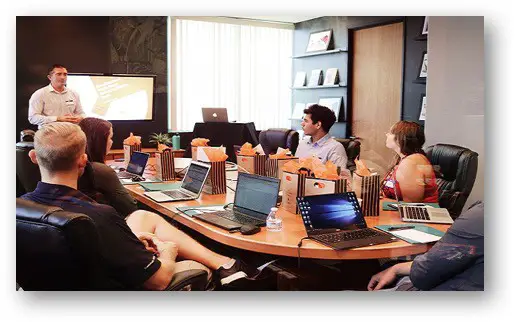First Job: 9 Tips that will help you Land that Job
The job market is increasingly competitive, with more factors being required, and this dispute is even greater for those who have never worked and are looking for their first job. Nervousness, anxiety, and insecurity (due to lack of experience) make the search for the ideal job even more outstanding, hindering the candidate at the time of the job interview.
Early career is almost always that story: young people can’t get a job because they don’t have professional experience. But how to get such an experience if no one gives you the first chance? For many, the first job paradox is a dead end. And then, when they don’t see any alternative or solution to overcome this impasse, they lose motivation and leave the search aside.
What is the importance of the first job in a professional career?
The first job is vital for your professional career in several ways. For example, during this opportunity, you will be able to discover your skills and competencies in practice, and most importantly, you will learn about your preferred working fields and start focusing on them.
Even if you did an internship before or dealt with many activities in college, the experience in the job market is different. There, the challenges and experiences directly reflect on a business. That means your responsibilities grow. You learn to face them, meet new people, and share your experiences.
Have you identified yourself and are looking for options to get your first job without having experience? To help you achieve this goal, we share some interesting articles related to succeeding in interviews down below, and we also share a list of tips to help you get your first job.
-

8 THINGS YOU CAN DO TO ACE ANY JOB INTERVIEW
-

The Importance of Communication Skills during a Job Interview
-

9 Tips For Delivering A Stellar Case Presentation Interview
9 TIPS TO GET YOUR FIRST JOB
1. Practice Diligence and Accountability
One of the key elements that make or break your chances of succeeding at getting your first job is being diligent and ready to take on responsibility. By being diligent, I mean doing your best to learn a skill, research about the role you aspire to take, or simply be on the lookout for opportunities. By being accountable and responsible, I mean self-motivating yourself and never giving up the search when things seem hopeless – taking fate under your hands and not playing the victim.
Sometimes, just because you transpire those virtues in your interview, the hiring manager will decide to bet on your potential. The scariest thing for a hiring professional is misreading a candidate’s potential through an impressive CV and then later finding out that he hired an irresponsible and nonculture fit individual.
2. Professional qualification
Getting your first job is all about your professional qualifications; doing higher education and getting a degree becomes essential. After all, it shows that you have prepared yourself to exercise a profession with quality and knowledge.
Studying at a good university is also all about this issue. If you choose a renowned and recognized institution for supporting students, you have already caught the company’s interest because it wants to have professionals who, even beginners, have a solid foundation in theory and practice.
- So, choose your college and course with care. Once you get your undergraduate degree, you need to continue to develop. Consider doing a graduate degree in your area of most significant interest.
- Take courses, and attend workshops. The more you understand your job, the more chances you have of getting and keeping your job until you move up the ranks or get an even better opportunity!
3. Invest in soft skills
Having social skills is undoubtedly a significant advantage for anyone looking to get their first job, even if you don’t have much experience or professional qualifications.
Qualities such as emotional intelligence, ability to work in a team, time management, confidence, and assertiveness will undoubtedly be considered.
To fit the desired profile, there must be space in your routine to develop these skills. One way to do this is to get involved in vacation projects and programs.
4. Recommendation
After proving your aptitude in the area, you want to work through studies and know that the nomination can help you in your first job. You know that teacher you get along with and rock your grades? Or that colleague with whom you have an affinity to do work?
These are people who can open many doors for you in the job market. A professor can write a letter of recommendation, as well as a colleague can give tips on companies and jobs that match your profile.
Having healthy relationships with people in college makes all the difference for you to join an exciting company that helps you develop.
5. Prepare your CV according to the job description
Your resume should reflect what is asked for in the position. Do not fill the document with experiences that have no connection with the company’s activities.
- The interviewer needs to detect your skills, knowledge, and plans in what you say. Talk about what you know best, your strengths and abilities, and what you expect from that position, and never get out of focus!
- As for resume format, remember: simplicity is always the best choice. Not a 20-page document – for those inexperienced, one is enough. Keep an eye out for spelling mistakes, which can make a wrong impression.
6. Network and Immerse in your Industry
Remember how we talked about referrals? What about maintaining good relationships with peers and teachers? It’s the network we were talking about. But you don’t have to limit yourself to just the school environment.
Whenever you attend congresses, seminars, and academic events, talk to everyone you can. Ask questions, kindly approach the speakers, and exchange ideas with people from different institutions. Always be open to news and pleasant debates.
That way, everyone gets to know your profile better. And when you’re looking for your first job, you’ll know where to find it.
7. Get ready for a job interview
Preparing for the interview is essential! Ask a friend to help by asking questions that can be found in videos on the internet.
Practice your diction, posture, tone of voice, and gestures. It doesn’t mean you have to give memorized answers. On the contrary, naturalness is fundamental. This is just a way to acquire more security because nervousness is inevitable at such a critical time.
If you prefer, you can still count on more professional guidance. Today, psychologists and coaches assess your communication style and advise you on how to improve your performance. This will be a learning experience to apply for the rest of your life.
8. Study the market in which you will operate
No going to the interview without knowing about the market. And not to shoot CVs without purpose. You must study the market in which you will operate.
- Search for large, medium, and small companies, access websites and social networks and find out what they are looking for or how they work.
- This is a way to understand better where you fit in. When applying for a job at a company with which you share premises and ideals, the chance of getting your first job is much greater.
9. Accept imperfect opportunities
Your first job doesn’t have to be that dream job, although that doesn’t mean you have to accept anything. Far from it!
The proposal must fit your life premise. But don’t expect an excellent salary or exciting activities. We always have to fight to earn a little more or do a role we don’t like so much until we get an ideal position.
Accepting imperfect opportunities is also a great chance to learn. You get to know a new reality, learn to overcome challenges, and develop as a professional. Upfront, this experience will make all the difference in your life.
-

Career Planning And Stages By Age: From Your 20s To 70s
-

9 Tips For Delivering A Stellar Case Presentation Interview
-

What Makes a Good Presentation For a Job Interview? 7 Tips
Conclusion
The first job is always a big challenge for anyone who wants to enter the job market; the lack of experience and confidence is a significant obstacle. Still, it can be overcome by joining lectures and doing online and presential courses as ways to enrich your professional experience.

References and Further Reading
8 THINGS YOU CAN DO TO ACE ANY JOB INTERVIEW
Nine tips to help you find your first job — and nail the interview








